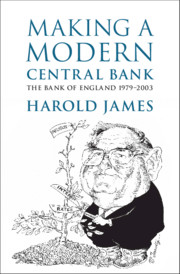Refine search
Actions for selected content:
26946 results in Economic history
Creating Global Shipping: Aristotle Onassis, the Vagliano Brothers, and the Business of Shipping, c. 1820–1970. By Gelina Harlaftis. Cambridge, U.K.: Cambridge University Press, 2019. xxiv + 375 pp. Maps, figures, tables, bibliography, appendices, index. Cloth, $120.00. ISBN: 978-1-108-47539-6.
-
- Journal:
- Business History Review / Volume 94 / Issue 3 / Autumn 2020
- Published online by Cambridge University Press:
- 25 November 2020, pp. 664-666
- Print publication:
- Autumn 2020
-
- Article
- Export citation
The Promise and Peril of Credit: What a Forgotten Legend about Jews and Finance Tells Us about the Making of European Commercial Society
-
- Journal:
- Business History Review / Volume 94 / Issue 3 / Autumn 2020
- Published online by Cambridge University Press:
- 25 November 2020, pp. 637-652
- Print publication:
- Autumn 2020
-
- Article
- Export citation
The City-State of Boston: The Rise and Fall of an Atlantic Power, 1630–1865
-
- Journal:
- Business History Review / Volume 94 / Issue 3 / Autumn 2020
- Published online by Cambridge University Press:
- 25 November 2020, pp. 631-636
- Print publication:
- Autumn 2020
-
- Article
- Export citation
Revolutionary Networks: The Business and Politics of Printing the News, 1763–1789. By Joseph M. Adelman. Baltimore: Johns Hopkins University Press, 2019. 280 pp. Illustrations, maps, figures, notes, index. Cloth, $54.95. ISBN: 9781421428604.
-
- Journal:
- Business History Review / Volume 94 / Issue 3 / Autumn 2020
- Published online by Cambridge University Press:
- 25 November 2020, pp. 660-664
- Print publication:
- Autumn 2020
-
- Article
- Export citation
BHR volume 94 issue 3 Cover and Back matter
-
- Journal:
- Business History Review / Volume 94 / Issue 3 / Autumn 2020
- Published online by Cambridge University Press:
- 25 November 2020, pp. b1-b2
- Print publication:
- Autumn 2020
-
- Article
-
- You have access
- Export citation
FHR volume 27 issue 2 Cover and Back matter
-
- Journal:
- Financial History Review / Volume 27 / Issue 2 / August 2020
- Published online by Cambridge University Press:
- 22 September 2020, pp. b1-b2
-
- Article
-
- You have access
- Export citation
Seven transformative crises from European revolution to corona: globalization and state capacity
-
- Journal:
- Financial History Review / Volume 27 / Issue 2 / August 2020
- Published online by Cambridge University Press:
- 22 September 2020, pp. 139-159
-
- Article
- Export citation
FHR volume 27 issue 2 Cover and Front matter
-
- Journal:
- Financial History Review / Volume 27 / Issue 2 / August 2020
- Published online by Cambridge University Press:
- 22 September 2020, pp. f1-f2
-
- Article
-
- You have access
- Export citation

Making a Modern Central Bank
- The Bank of England 1979–2003
-
- Published online:
- 18 September 2020
- Print publication:
- 17 September 2020
Glossary
-
- Book:
- The Organization of Ancient Economies
- Published online:
- 31 August 2020
- Print publication:
- 17 September 2020, pp 373-376
-
- Chapter
- Export citation
Three - The Community of Households
-
- Book:
- The Organization of Ancient Economies
- Published online:
- 31 August 2020
- Print publication:
- 17 September 2020, pp 43-75
-
- Chapter
- Export citation
Bibliography
-
- Book:
- Making a Modern Central Bank
- Published online:
- 18 September 2020
- Print publication:
- 17 September 2020, pp 526-533
-
- Chapter
- Export citation
Five - Financing Formal Institutions
-
- Book:
- The Organization of Ancient Economies
- Published online:
- 31 August 2020
- Print publication:
- 17 September 2020, pp 109-153
-
- Chapter
- Export citation
Seven - The Role of Merchants and Trade in Ancient Society
-
- Book:
- The Organization of Ancient Economies
- Published online:
- 31 August 2020
- Print publication:
- 17 September 2020, pp 194-236
-
- Chapter
- Export citation
12 - ‘You Can’t Be In and Out at the Same Time’:
-
- Book:
- Making a Modern Central Bank
- Published online:
- 18 September 2020
- Print publication:
- 17 September 2020, pp 310-317
-
- Chapter
- Export citation
1 - Introductory
-
- Book:
- Making a Modern Central Bank
- Published online:
- 18 September 2020
- Print publication:
- 17 September 2020, pp 1-31
-
- Chapter
- Export citation
13 - Horses for Courses
-
- Book:
- Making a Modern Central Bank
- Published online:
- 18 September 2020
- Print publication:
- 17 September 2020, pp 318-375
-
- Chapter
- Export citation
Nine - On Markets and Marketplaces
-
- Book:
- The Organization of Ancient Economies
- Published online:
- 31 August 2020
- Print publication:
- 17 September 2020, pp 275-316
-
- Chapter
- Export citation
Abbreviations
-
- Book:
- Making a Modern Central Bank
- Published online:
- 18 September 2020
- Print publication:
- 17 September 2020, pp xxi-xxiv
-
- Chapter
- Export citation
Preface
-
- Book:
- The Organization of Ancient Economies
- Published online:
- 31 August 2020
- Print publication:
- 17 September 2020, pp xv-xvii
-
- Chapter
- Export citation
